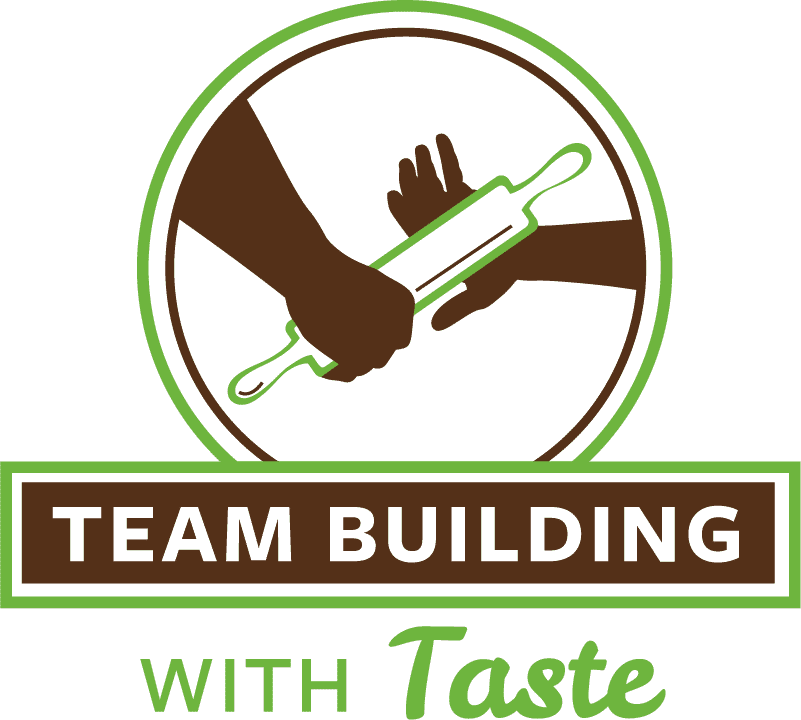Develop Team Building Problem Solving Skills with Hands-On Cooking Classes
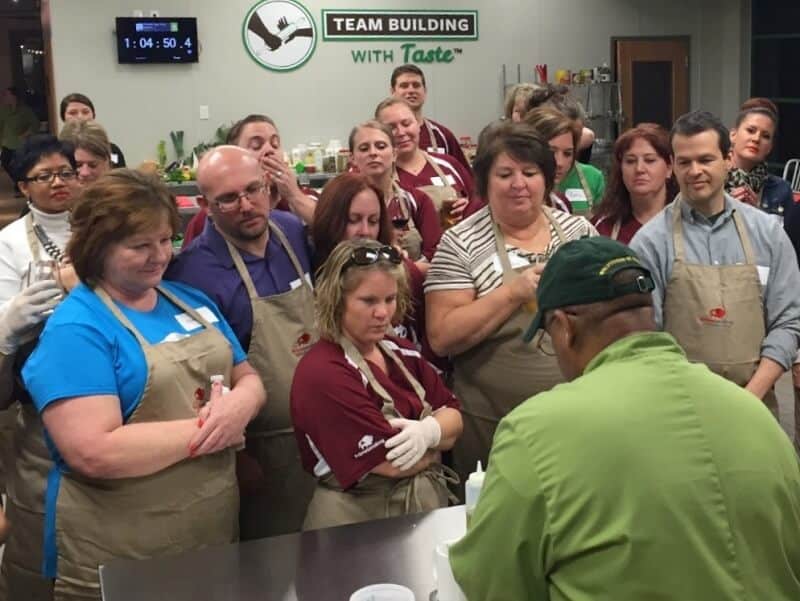
Share this:
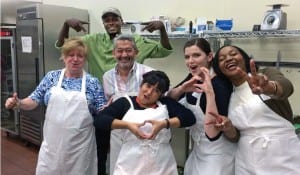 How to Develop Team Building Problem Solving Skills
How to Develop Team Building Problem Solving Skills
In some organizations, workers spend most of their time on their individual contributions to a larger goal. But as problems pop-up or if one team member is blocked from completing their part of the work, individuals may have to solve problems as a group. Believe it or not, you can teach team problem solving skills and team building with hands-on cooking classes. At Team Building with Taste structured team building problem solving is “baked in” to every event as an opportunity for your team to build communication and collaboration skills that can translate to solving workplace problems.
How Structured Team Building Cooking Classes Teach Problem Solving
In some cases you need more than casual social events. Your team may benefit from a structured team building event focused on teaching the skills needed to make decisions as a group and solve work place problems. Here are nine practices that help foster a problem solving team that can make decisions by consensus.
Seven Steps to Develop Your Team Building Problem Solving Skills
Encourage but quickly resolve minor disputes. Direct and straightforward communication is essential to productivity. But this same directness can lead to conflict. Encourage direct communication among team members. Team building events are good practice sessions for team members to practice their communications skills. For example is one recent session, one participant turned to a colleague and emotionally stated, “that’s the first time in five years of working with you that you ever asked me for help—with anything!”
- Encourage team members to share information. Highlight the importance of each team member’s contribution and explain how all of their jobs operate together to help the entire team reach its goals. At Team Building with Taste we encourage the use of “tasting spoons.” This feedback mechanism lets everyone on the team know how the dish is progressing well before it is complete.
- Delegate problem solving tasks to the team. Yes, every team needs a chef. But even a bossy chef needs a good team of sous chefs, sauciers and more. Assigning one problem to two people with relevant skills gives team members a chance to practice collaboration.
- Facilitate communication. Remember that communication is the most important factor in teams that excel in productivity. Set an example for clear communications by remaining open to suggestions, by asking questions, by offering help and especially by listening carefully to the concerns of team members. At the end of one session, a participant stood up and said, “we had an hour to cook. So we had to communicate directly and simply. In the office, we beat around the bush and never say what we mean. That should change.”
- Establish team values and goals. At the beginning of each members work with the team, talk with each team member about the goals of their team and the goals of their own job. By making these goals clear at the beginning, team members will know what they are expected to do. Discuss how progress toward goals will be measured. This helps team members to understand which actions they should prioritize to make progress toward their individual goals.
- Make sure that you have a clear idea of what you need to accomplish. Set clear goals for each team member. Establish clear time frames for each goal and set clear areas of responsibility for each team member. Set ground rules for the team. For example, we encourage each team to review the recipes and determine their strategy before starting to cook. These are the norms that you and the team establish to ensure success. It’s important to set these rules for expected deliverables behavior and make sure that the team creates these ground rules and commits to them.
- Establish a method for arriving at a consensus for problem solving. When you’re discussing how a problem will be solved or who will do the work, open discussion may be the quickest way to review the pros and cons of that decision. To review how more complicated goals will be accomplished, it may be better to have a research committee investigate the issues and deliver a report.
- Establish a framework for your consensus – building meetings. It can be frustrating for team members when a long meeting fails to reach a decision. It’s better to set time limits and reach a consensus decision. Once a decision is reached on how a problem will be solved, probe individual team members to learn how they will implement their part of the solution.
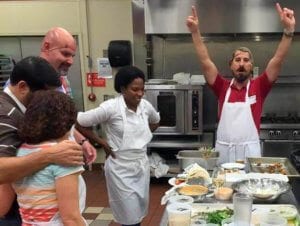 How to Handle Teams that Struggle with Decision Making
How to Handle Teams that Struggle with Decision Making
If your team struggles with reaching a consensus or has frequent misunderstandings on the way to reaching their goals, then it’s time to address this issue. Team building events can be your solution to train team members on the vital skills of communication and collaboration.
How Cooking Events Build Team Skills
By taking the team out of the workplace for this valuable training you eliminate the pressures of the workplace. We find that team building events in a cooking competition allow us to see how your team is handling communication and problem solving in a short time frame. By working together on a simple task, team members begin to see what works and what doesn’t work.
Everyone learns differently. Some people are better auditory learners, and prefer lecture-style teaching. Others excel at visual learning, and pick up a skill just by watching someone else.
Hands-on, or ‘learning by doing’, is one of the most effective ways to teach a person a new skill. Of course, there are certain things which can only be taught directly. An informational video can’t truly teach someone how to swim, for example.
Similarly, there is only so much that online or TV cooking shows can teach people. Taste and smell simply don’t translate onto a page or screen. That’s when hands-on cooking classes for individuals and corporate cooking classes for groups come into play!
Why Hands-On Cooking Classes?
You might be wondering how hands-on cooking classes can be beneficial for individuals, groups, or teams. When most people get groups or teams together and food is involved, they’ll go to a restaurant or have food catered. There’s much less mess, after all!
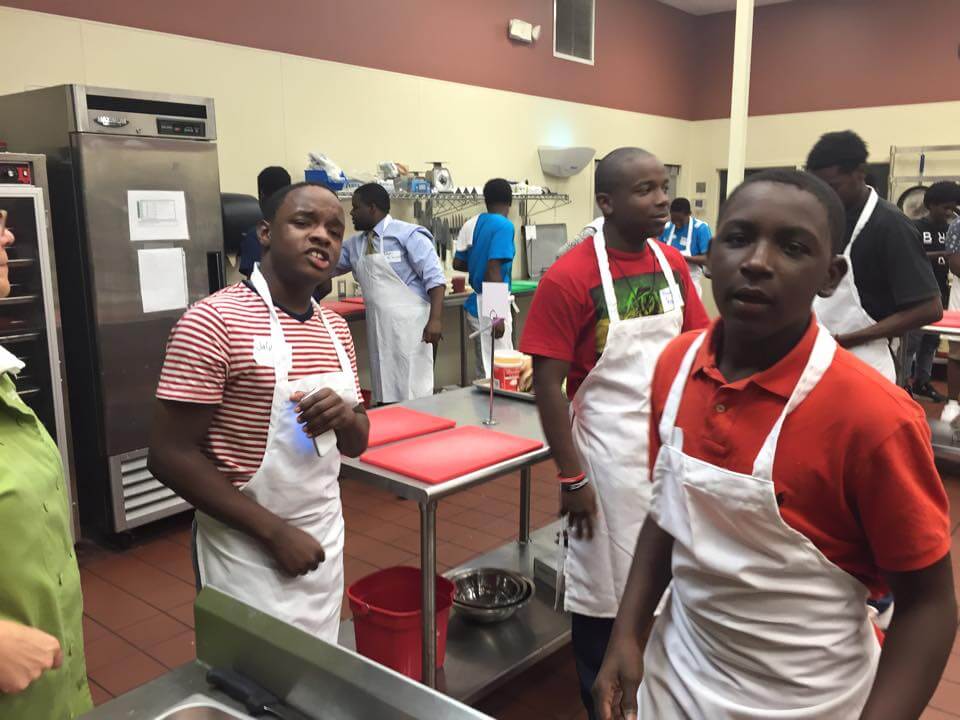 At Team Building With Taste, we’ve found that the kitchen is the perfect environment for people to learn new skills. As fun as cooking shows on TV are to watch, they can only engage us so far beyond the visual level.
At Team Building With Taste, we’ve found that the kitchen is the perfect environment for people to learn new skills. As fun as cooking shows on TV are to watch, they can only engage us so far beyond the visual level.
Food unites us all, building bridges between people of all ages and backgrounds. The distance which existed between the veteran employee and the intern is closed when both of them work together at the flat-top grill!
Hands-on cooking classes actively engage participants in a fun and collaborative environment, teaching new skills as well as teaching people how to work together. In addition, there is just the right amount of deadline pressure and a little healthy stress to get everybody working together.
Sautéing, frying, and flambéing may not seem to have much place in a person’s life unless they are a chef. However, these skills may be completely new to someone. During our challenges, this person will be both challenged to learn a new skill and motivated to help the team succeed.
Our Setup
Team Building With Taste was founded in Atlanta, and our Atlanta location has seen many corporate teams cook in our kitchen! Team building is important for any corporate group, but can also be fun for birthdays, weddings, family reunion events, and more.
Atlanta Team Building
Our Atlanta location’s corporate team building events are very similar to the culinary competitions on TV. Groups are split into teams, and under the guidance of professional chefs, each team is tasked with preparing a multi-course meal within a set time limit.
Teams will also find themselves adapting to ‘curveball’ challenges, which tests both their innovation and creativity! Teams are judged on taste, presentation and plating, and time.
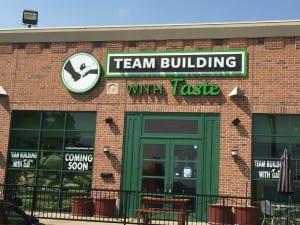
Team Building With Taste
Learning new skills helps us maintain our minds’ health and connect with people in new ways. Learning new skills in an interactive environment – like hands-on cooking classes – is even better!
Whether you’re an individual looking for something new and different to try your hand at, or a supervisor or manager tasked with finding the perfect team building activity for your team, you’ve found the perfect match at Team Building With Taste.
